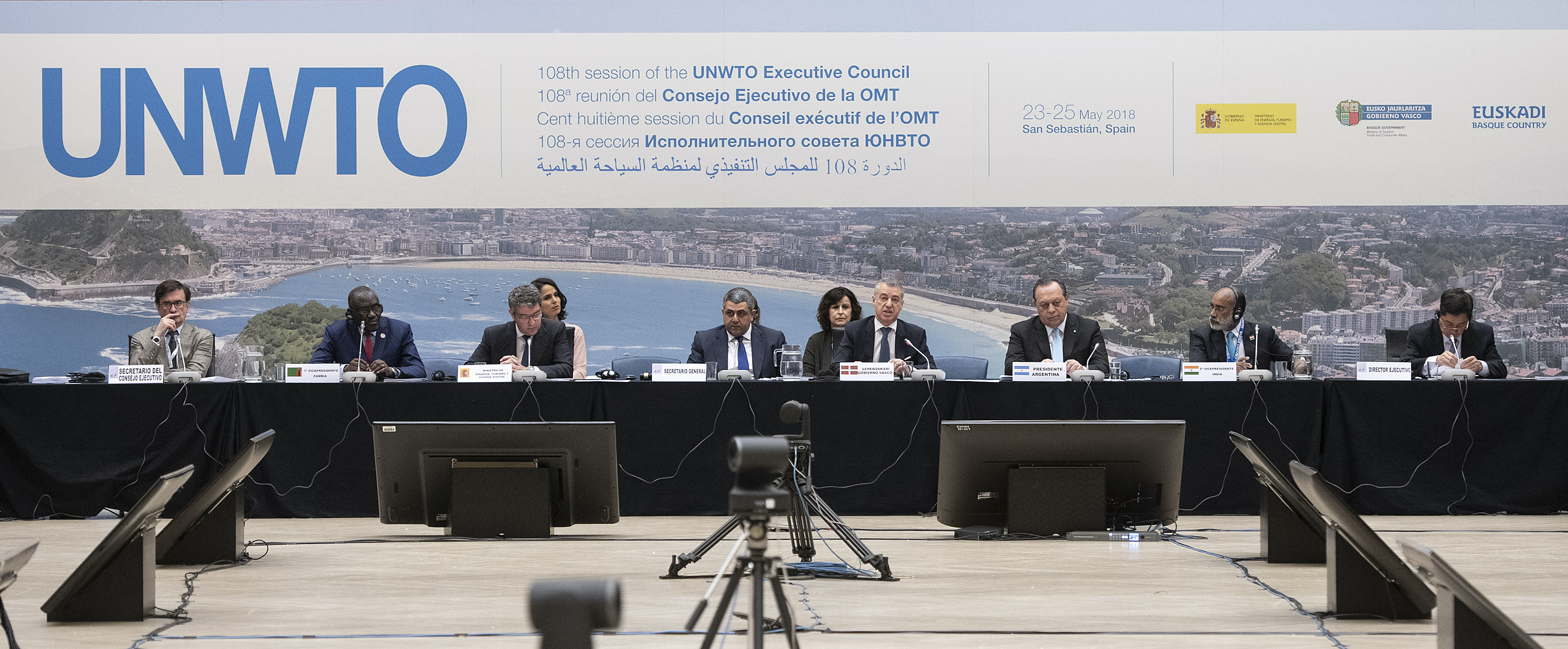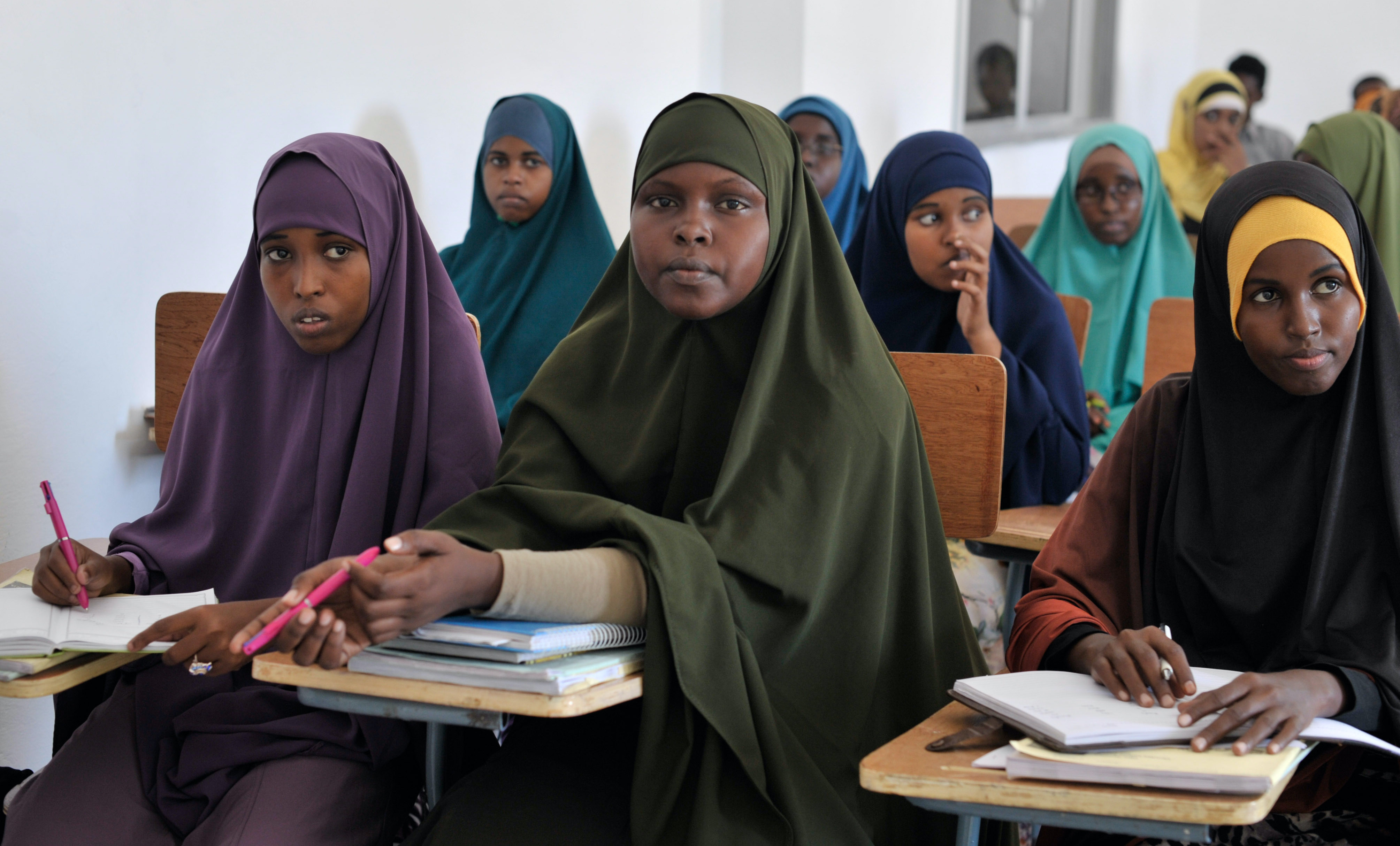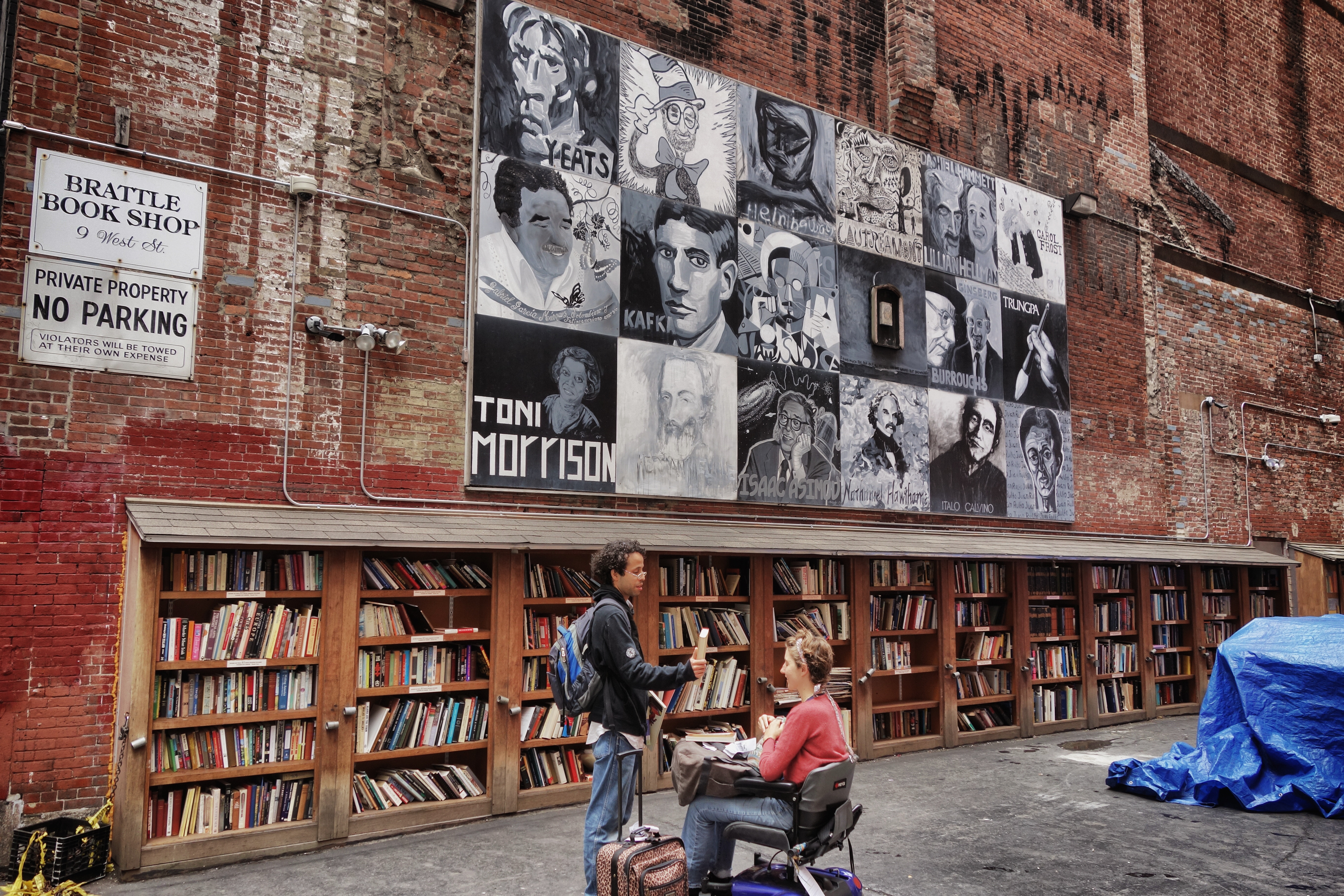05-07-2020
Gender mainstreaming in tourism university studies
Núria Abellan | Alba SudApplying gender perspective in any aspect of society is now more than ever a necessity. Its integration in tourism academia involves reviewing the current production of knowledge and the dynamics created inside and outside the classrooms.

Crédito Fotografía: Scottish Government, bajo licencia creative commons.
Gender perspective, coming from multiple feminist trends, is whole, transversal, and multidisciplinary, positioning itself as a platform that allows for the analysis of the reality surrounding us with a new looking. For this reason, applying this holistic vision to tourism means reviewing plenty of dynamics present in the industry, as well as structural factors that keep occurring in the tourism activity. Feminism allows for gender inequalities to be the focus of the analysis in order to understand their reproduction inside the industry and which resources are available to reduce them.
Despite the current and the potential contributions of feminist theory to tourism, the study of tourism under the gender perspective is relatively new, beginning in the ‘90s, while investigations are now proliferating. That is why it becomes necessary to consider the integration of the gender perspective in the classrooms, so that we can be aware of this interpretation and, at the same time, draw the first lines into the gender mainstreaming in the Degrees in Tourism.
Nowadays, there is a debate among gender studies on the need to talk about feminism or feminisms. The voices rising from academia often concur in opting for a wider feminism that reflects all the sensitivities, intending to reach a unique, universal and richer framework (Castañeda, 2016). On the other hand, discourses coming from social movements may vary from the academic ones, establishing that speaking of feminisms is the best way to acknowledge every vision existent. Those trends are argued to be the ones that manage to shine a light on all those identities that have been in the shadow up until now, both in the social and the academic fields. Following this thought, it is advocated that the current feminisms are too plural to be clustered into one unique perspective.
What is the ongoing state of the academic studies on tourism and gender perspective?
The production of knowledge is what determines the current and future lines of research in every area, in this case, in tourism. For this reason, analysing who is the producer, who has access to it and how is it created, is of great importance so that we are able to understand where do we stand and where are we going. One of the first observations in the analysis of scientific production is precisely who studies tourism? The answer to this question stands out due to its contrast: while the number of tourism graduates is mainly feminine, reaching 75%, women represent just 53% of the academics (Basurto-Barcia and Ricaurte-Quijano, 2017).
This fact directly impacts on the authorships of papers and investigations published in the tourism sector. Some data in this direction clarifies the bias and the inequalities existent, such as the fact that publications where women and men have collaborated tend to be more productive, whereas the ones published exclusively by men have more impact (Koseoglu et al., 2019); the tendency to cite more papers published by men and the higher tendency of male authors to auto-citation (Nunkoo et al., 2019); the low percentage of words related to gender studies in the articles published in high-impact tourism journals (specifically 5,5%) (Small et al., 2017); as well as the primarily male composition of the management boards in high-impact tourism journals, which is 75% in the principal 20 journals (Pritchard and Morgan, 2017).

Meeting of the UNWTO Executive Council held in Donostia, Euskadi, 2018. Source: Irekia, under licence of creative commons.
This quantitative data has an impact on the content of the scientific investigations since gender is often analysed as a demographic variable, without taking into account structural aspects, and without an intersectional thought. Intersectionality is understood as the framework that allows for the analysis of social and political identities that can interact with each other to create unique forms of discrimination. The collisions taken into account are the ones in terms of gender, sexual orientation, age, race, colonialism, capacities, or social class, among others. It is obvious that, if the production of scientific knowledge is not intersectional nor transversal, the main source used will still be the hegemonic discourse, perpetuating the exclusion of the identities and experiences that are not normative (Crenshaw, 1989).
On the other hand, it is fundamental to analyse how scientific knowledge is transmitted outside the classrooms and academic articles, through events as conferences, conventions, and workshops in the tourism scope. In this sense, gender inequality persists among the speakers, and especially among the keynote speakers (Chen and Tham, 2019). Moreover, conferences are a complex and dynamic space, where multiple factors related to gender roles outside the stage need to be taken into account. Despite women speakers being a minority, they are a majority in the care work, as is cleaning, catering and customer services, delivered by cleaning staff, waitresses, and stewardesses (Khoo-Lattimore et al., 2019). At the same time, it is vital to bear in mind the informal encounters in these events, where the links between the male participants are strengthened while women are partially excluded. There are multiple causes to explain this fact, for instance, harassment situations, the perception of precarious personal safety manifested by some participants; or the difficulty to attend the meetings due to being responsible for care work in the personal sphere (Mair and Frew, 2016).
Applying gender perspective in the university classrooms
Bearing in mind that the main publications reproduce patriarchal patterns, both in the content and the dynamics, the shift from the current paradigm to teaching under gender perspective is, by all means, a hard task. The ongoing context is filled with male voices, essentially white and from the Global North, meaning that the present knowledge and the investigation agendas remain the same and do not boost new lines of research. This fact also leads to the questioning of the high-impact journals as the main sources of information for academic papers, and once again forces investigators to go beyond the rankings and get closer to the social movements and the knowledge produced by other agents.
This homogeneity often turns into a lack of knowledge on the gender perspective of the professors, which is the reason why specialized implementation of gender in tourism studies curriculums is advised as a starting point to gender mainstreaming. Training of professors is necessary, so that new feminine models of reference can resurface, historical and present, transforming the collective mental structures on who the references can be, thus contributing to changing the current situation in the long term (Gretzel and Bowser, 2013).
On the other hand, the lack of gender perspective in university classrooms is also manifested in the methodologies used to teach. Traditional methodologies tend to prioritise the academic discourse and stand far from social movements, which involves the limitation of the sources used, as well as an incomplete vision of reality. Among other difficulties found when implementing gender perspective in the lecture rooms, some emerge strongly, such as the frontal rejection of the feminist discourse or the perpetuation of traditional gender roles. The latter comprises dynamics such as the overwhelming majority of male participation in master classes, open debates, and oral presentations; a greater number of interruptions on female interventions; or care work being delivered by women, such as coordination, organisation or calendarisation of group projects (Verge and Alonso, 2019).
Frameworks for the incorporation of the gender perspective in the classrooms: what are we based on?
Currently, Catalan universities are based on three different approaches so that gender perspective can be incorporated in the lecture rooms. Law 17/2015, July 21st, of effective equality between men and women, fostered by the Catalan Government, dedicates the 28tharticle to the incorporation of the gender perspective in the university sphere. Three main topics appear in this law, those being: gender mainstreaming in every field of knowledge; training in gender perspective of university workers; and the creation of specific courses or units in gender perspective that are mandatory to attend during the degree. In order to apply those measures, in 2018 the AQU (Agency for the Quality of the Catalan University System), presented the General Framework for the Incorporation of Gender Perspective in University Teaching. In this document, both gender specializing through concrete subjects and gender mainstreaming are encouraged.

Somalian university students. Source: AMISOM, under licence of creative commons.
Meanwhile, Law 11/2014, October 10th, to guarantee the rights of lesbians, gays, bisexuals, trans, and intersexuals and to eradicate homophobia, biphobia, and transphobia, promotes respect for sexual and affective diversity, gender identity and diverse family models in every stage of education. Specifically, in universities, this legislation establishes the need to boost measures that protect, support, and develop further research for the visibility and non-discrimination against the LGBTIQ community. One of the resources used to enforce these measures is the Guide for the incorporation of sexual and gender diversity in the Catalan universities through the Law 11/2014, fostered by the Equality General Direction in 2018, describing the situation of the LGBTIQ community in the universities. Moreover, in this document, four scopes of action are defined, which are the university community, discrimination and harassment, teaching and research, focused on the vindication of the diversity present in the classrooms, and also on the promotion of academic initiatives.
What does gender perspective bring to the university sphere?
Gender perspective implies ending the gender bias in text authorships, academic publications, and in the composition of board managements in the scientific journals, among others. This way, it would be possible to integrate new voices into the academic discourse, the ones that have usually been invisible. Regarding citations and references in the publications, some stances claim that the name of the authors should be written to offer a broader perspective on the bias existent in the production of knowledge (Munar et al., 2015). With this goal in mind some platforms have been created, such as Gender balance assessment tool, which analyses the references of a paper in order to detect the number of authorships by gender; or the software genderize.io, which indicates the complete name of the authors.
However, the implementation of the gender perspective does not have, or rather should not have as a goal reaching a quantitative balance on the representation of women and men. It is crucial to evaluate the difficulties that women have to overcome to face the obstacles imposed by inequality structures that influence in every area (Abellan, 2020). The biased historical construction of the disciplines is notable in every field of knowledge; hence gender perspective means different approaches to each area of research. In the case of tourism, included in “social and legal sciences” according to the General Framework previously mentioned, it is considered that feminism needs to be implemented in the classrooms due to the direct effect upon people as citizens, users, consumers, or communities and cultures; as indirectly through how institutions and organisations regulate social interaction. It is also considered relevant in order to read reality from a new perspective, studying attitudes, values, behaviours, and needs of the population.
Particularly, gender perspective applied to social sciences involves: macroeconomic analysis that take into account household and care work; detection of gender inequalities production and reproduction in social politics; perceiving the differentiated impact of budgets on men and women; identifying the needs and vital experiences of men and women as public services’ users; analysis and creation of equality plans under gender perspective; measures of conciliation, protocols to prevent violence against women and programmes of safety and labour health; as well as the integration of feminism in the politics of cooperation and development.

Students in front of an open-air book shop. Source: Rob Faulkner, under licence of creative commons.
On the other hand, gender perspective has a great influence on the contents imparted, especially in two different manners. Firstly, it allows for the reviewing of the current dynamics taking place in the classrooms, previously mentioned, influenced by patriarchal logic in terms of participation during lectures or in group and teamwork. Secondly, critically reviewing the learning atmosphere leads to applying inclusive methodologies and evaluations that attend to the needs of a diverse student body. Since feminism in the classrooms opens the door to the inclusion of a greater number of collectives, cases of students with functional diversity that are now excluded from the lecture rooms because of the methodologies used are taken into account. This way, applying feminism could grant access to the classrooms to those with hearing, visual and/or mobility impairment, autism spectrum, Down Syndrome, ADHD, dyslexia, dyscalculia, and/or wit conduct disorder, among others. Due to the change in the methodologies, the traditional final evaluations are also put into question (Abellan, 2020).
Taking into account a plural vision, other initiatives with a direct impact on the lives of those who are part of the academic community have appeared, such as protocols to prevent and act against harassment; protocols to change the dead name to the preferred name addresses to the trans community; as well as agreements among universities for free relocation of the academic record in cases of violence against women.
Final thoughts
Understanding that gender perspective involves reorienting the academic discourses to stretch the visions and voices, their integration to the university curriculum means stimulating and developing the critical thought of the student body. Furthermore, the implications of this knowledge extend beyond the classrooms, determining future professional activity to be established as a mechanism that avoids reproducing gender inequalities (Verge and Alonso, 2019).
It is essential to highlight the transformation of the contents derived from the implementations of the gender perspective in education, added to all the shifts in the dynamics already mentioned. This is why a comprehensive approach of feminisms is needed, beyond the prevailing tendencies, so that students can be equipped with diverse analysis frameworks that aspire to be a wider view. Concretely, each feminist trend is focused on particular aspects, although they often overlap. Among many other examples, we find Marxist feminism and the feminist economy, which bring new tools to analyse tourism labour market in order to study the systemic inequalities present, linking gender and social class in collectives such as the hotel maids. Ecofeminism focuses on the exploitation of natural resources and the relationship that we as humans establish with nature, in aspects as crucial as water or the property of the land, locating life at the centre, instead of production. Decolonial feminism addresses race and gender as facets of oppression, rereading the dynamics taking place between the South and Global North in aspects such as volunteer tourism or slum tourism, among others. The queer theory makes the LGBTI+ community visible inside the industry and, at the same time, questions the uses of space and who is included or excluded from the touristic experience. Feminist urbanism, strongly linked to this last idea, studies the patriarchal creation of both public and private spaces, so that topics as inclusive mobility patterns and safety perception can be investigated.
On the other hand, gender perspective also allows to deepen in other subjects with a new gaze, such as marketing and discourses of sexualisation and inclusion/exclusion from the destination; sexual harassment that may happen in any area of the tourism industry; taking into account the motivations, wishes, and perceptions of hosts and travellers; analysing how tourism is at the same time an instrument that reproduces global inequalities and an opportunity to break them; or the commodification of aspects such as surrogacy, the intellectual property of the workers as are the Mayan weavers in Guatemala; or the development of action plans and public policies with a comprehensive gender perspective; among some of the multiple aspects that take a new dimension through the feminist gaze.
Gender perspective applied to the university field emerges as a key aspect for the transformation of tourism in the long term: a new framework that enables initiating a process of changes in diverse aspects and in multiple theoretical contributions. Because of the transformation it carries within, it is indispensable to develop further research, while keeping an open mind so that contributions from each feminist trend can be included. Despite the theory being essential, the work needs to be headed to delivering concrete proposals in the university. Finally, one of the most sensitive challenges in the long term is the constant reviewing, to ensure the integration of all the disciplines, collectives and methodologies, and leave nobody behind.
Noticias Recientes
-
Trabajo y turismo comunitario: reflexiones sobre el realismo capitalista
Noticias Generales | 23-04-2024 -
Seminario en línea: Áreas verdes urbanas en América Latina
Noticias Generales | 22-04-2024 -
Desafiando un modelo turístico obsoleto: Canarias se rebela
Noticias Generales | 18-04-2024 -
¡Quita tu sonrisa! Quiero caminar con mi color. Turismo y cuestión racial en Brasil
Noticias Generales | 16-04-2024 -
600-Motor de libertad: itinerario narrativo por el barrio de la Marina (Barcelona)
Noticias Generales | 11-04-2024 - | Archivo de Noticias »

